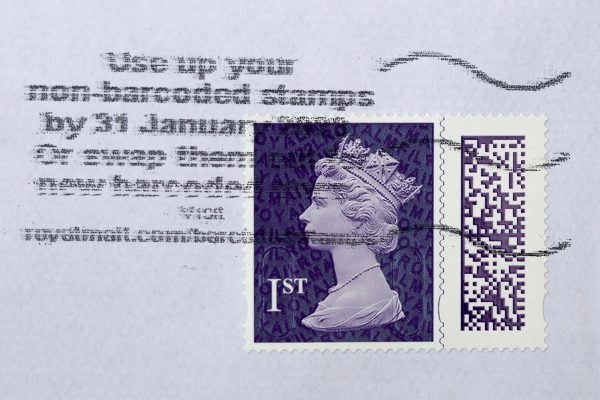Article updated 16/10/2017 to reflect more accurately the time line specifically adding in likely time periods for steps 1) and 2) and change the expected total mediation period to be 7 weeks minimum (up from 5 weeks) after a mediator is appointed
Today the Royal Mail won a High Court Injunction declaring the strike call to be unlawful and saying that the CWU is obliged to withdraw its strike call until the external mediation process has been exhausted. You can read more about it on this article which will be updated as more news comes through. So what happens next?
The Agenda for Growth
The CWU and Royal Mail both signed the Agenda for Growth at the time Royal Mail was privatised. This legally binding agreement set out what would happen in the event the two parties couldn’t reach an agreement and we reproduce the “External Mediation” section below this article. Picking through the agreement we can set out a timeline to indicate the earliest possible date that the CWU could call strikes deemed to be lawful by the High Court.
The External Mediation Timeline
-
The Appointment of an external Mediator – At least 1 week
An external mediator will be appointed by ACAS.
-
Submissions – At least 2, possibly up to 4 weeks
Both Royal Mail and the CWU will put forward a representative to help the mediator to understand the issues in question and will provide all the evidence and a clear statement of the issues in dispute.
-
Mediator to make recommendations – Time 2 weeks
Within two weeks of having received all submissions the mediator will produce non-binding recommendations.
-
Royal Mail and CWU will meet – Time 1 week
Within one week of the recommendations being made the CWU and Royal Mail will meet to review the outcome and decide their response. If at this time agreement is met then the dispute ends and recommendations immediately implemented.
-
Failure to agree – Time 2 Weeks
If either party is unable to accept the mediators recommendations then a further 2 week period is prescribed for further negotiations. The disagreeing party is expected to advise the reasons for rejecting the recommendations and their alternative suggestions.
-
Further failure to agree
If by this stage agreement hasn’t been met then the parties will write to each other to notify of their intentions. It is at this point that the CWU could notify Royal Mail of their lawful intention to call for strikes
Minimum 7 weeks before industrial action by Postal Workers
-
The Appointment of an external Mediator – At least 1 week
An external mediator will be appointed by ACAS.
-
Submissions – At least 2, possibly up to 4 weeks
Both Royal Mail and the CWU will put forward a representative to help the mediator to understand the issues in question and will provide all the evidence and a clear statement of the issues in dispute.
-
Mediator to make recommendations – Time 2 weeks
Within two weeks of having received all submissions the mediator will produce non-binding recommendations.
-
Royal Mail and CWU will meet – Time 1 week
Within one week of the recommendations being made the CWU and Royal Mail will meet to review the outcome and decide their response. If at this time agreement is met then the dispute ends and recommendations immediately implemented.
-
Failure to agree – Time 2 Weeks
If either party is unable to accept the mediators recommendations then a further 2 week period is prescribed for further negotiations. The disagreeing party is expected to advise the reasons for rejecting the recommendations and their alternative suggestions.
-
Further failure to agree
If by this stage agreement hasn’t been met then the parties will write to each other to notify of their intentions. It is at this point that the CWU could notify Royal Mail of their lawful intention to call for strikes
Minimum 7 weeks before industrial action by Postal Workers
Picking through the time line there are at least 7 weeks of prescribed mediation activities which must take place before a postal strike will be deemed lawful. Starting today this takes us up to the 16th of November. However in reality the process will take considerably longer as it can’t truly get underway until a mediator is appointed.
Will the mediation process be completed in 7 weeks?
Doubtless the CWU will want the process to be as speedy as possible as there will be considerably less impacts from postal workers industrial action after Christmas. In addition the CWU are on a time line as their ballot is only valid for 6 months at which time they would have to reballot postal workers if they wished to stage further industrial action.
There is plenty of wiggle room for Royal Mail to delay proceedings and they have indicated that the process could last until after or at least close to Christmas. The Agenda for Growth agreement doesn’t specify how long various stages (such as submitting evidence) should take. One might expect an independent mediator to insist that the process be relatively speedy but that is still open to interpretation and stalling tactics.
It would appear unlikely that the mediation process will be completed within anything close to 5 weeks and both the CWU and Royal Mail acknowledge it will be at least a seven week process, but the clock doesn’t even start ticking until a mediator is appointed.
Does this mean no strikes before Christmas?
There are a number of things that could now happen outside the mediation process. The CWU are doubtless considering an appeal to the High Court injunction, which if overturned would clear the way for strikes. It’s also a possibility that the CWU would call for illegal strikes in which case we have no idea that the ramifications would be.
Terry Pullinger of the CWU, speaking outside the court today, suggested that the process would be completed within seven weeks meaning that a likely earliest date for strikes would be around the 1st of December.
ARoyal Mail spokesperson told us: “Royal Mail is very committed to working closely with the CWU in order to reach agreement as a matter of priority“.
The first step of the mediation process is to appoint a mediator. Royal Mail are currently working together with the CWU to appoint a joint external mediator. Once the mediator has been appointed, Royal Mail say that there is a minimum seven week process to go through.
The ‘Agenda for Growth’ agreement between Royal Mail and the CWU
5.4 External Mediation
External Mediation will apply in the following circumstances:
- If a local disagreement remains unresolved after Stage 3 of the IR Framework there will be 7 days for national intervention, after which it will automatically be referred immediately for external mediation.
- Where the national parties fail to reach agreement on a point of principle relating to existing agreements that has been referred to them, it will be referred for external mediation after a period not exceeding one month from it being initially tabled by either party.
- Where there is a national disagreement relating to a matter that is not covered by existing collective agreements, it will be similarly referred if an agreed way forward is not found within one month.
- Where unballoted industrial action continues beyond 48 hours.
The External Mediator will be appointed from a jointly agreed panel managed by ACAS and will have no other connection with Royal Mail or the CWU. The mediator will be provided with all relevant papers and evidence, together with clear statements from each party on the issue that is in dispute and on which a recommendation is sought. Both Royal Mail and CWU will provide a representative to work with the Mediator to assist in understanding the issue in dispute, the background and the implications of any decision before it is made.
In considering the dispute and making recommendations, the External Mediator will take account of any regulatory and legal requirements, the terms and spirit of the Agenda for Growth, Stability and Long Term Success Agreement, other relevant national agreements, the needs of customers, the universal service obligation, and the need for appropriate efficiency supported by a climate of sustainable trust and collaborative decision making.
The External Mediator will produce recommendations within two weeks of having received all relevant papers and having met the representatives of each party. Although the recommendations from the mediator are nonbinding the expectation is that both parties will use the mediator’s recommendations to resolve their differences. The parties will meet within one week of the mediator’s recommendations to review the outcome and confirm their response. If they both agree, the resolution arising from the recommendations will be implemented without further delay. If one or both parties are unable to agree in whole or in part with the recommendations, they will advise the other of the reasons for this, indicate what they are prepared to agree instead and there will then be a further two weeks during which there is a final opportunity to reach agreement before the process is concluded.
In the event that the process concludes without agreement, the parties will write to each other to notify their intentions.
The parties may agree to extend any of the timescales above by agreement.









34 Responses
Excerpt from the government’s 2010 document “Industrial Action And The Law”, referring to what happens if a court order is granted to stop action.
Does Dave Ward fancy having the CWU assets seized?
Quote:
What if a union fails to obey the court order?
If the court order is not obeyed, anyone who sought it can go back to court
and ask that the union (or any particular individual(s) concerned) be declared
in contempt of court.
A union found to be in contempt of court may face heavy fines or other
penalties which the court may consider appropriate; for example, refusal to
pay fines may lead the court to order the union’s assets to be seized.
In addition, the law provides a special statutory right under which a union
member may bring legal proceedings against the union’s trustees on the
ground that they have caused or permitted the unlawful application of union
property (see section on Unlawful use of union funds or property by trustees).
Unlawful use of union funds or property by trustees
When a union organises industrial action, it will be vulnerable to legal
proceedings unless it ensures that it complies with statutory requirements and
with the provisions of the union’s own rulebook. In addition, if it fails to comply
with any such requirement it may also be using its funds or property
unlawfully. It would certainly be unlawful, for example, for a union to continue
to use its funds or property to support industrial action if, as a result of legal
proceedings, a court has issued an order against the union restraining it from
inducing that action.
The law guarantees a union member’s right to take legal action against the
trustees of his union in such circumstances. A union member has the right to
take legal proceedings against his union’s trustees if they apply, or permit the
application, of union funds or other property for unlawful purposes. Union
trustees cannot under any circumstances, including those which might arise
during industrial action, unlawfully use union funds or property, or allow them
to be used, for unlawful purposes. Nor may they comply with any unlawful
direction given to them under the rules of the union without risking legal
proceedings being taken against them by a union member.
So, under the law, not only can a union’s assets be seized, but action can be taken against union trustees.
Furthermore, using the unions assets to support industrial action, if found in contempt of court, is also illegal and could be subject to action, even by union members, as unlawful use of union funds.
How much is Dave Ward’s mansion worth ????
Disgraceful behaviour by Royal Mail. I would fully support an Illegal strike. Perhaps if members call it without union organising it then surely the union can’t be held in contempt?
I clicked on Larry’s name and it defaulted to a Facebook page
https://www.facebook.com/thepostmansring/
Possibly not an impartial comment – Hmmm!
After a lot of worrying about another strike, I have jumped ship. Strike, don’t strike, I don’t care – I don’t use Royal Mail anymore! Yipee!!!!
No surprise. The postal strike threads have been heavily commented on by the anti-capitalist momentum lot, who don’t really have anything to do with e-commerce, except when they buy a new che guevara t-shirt online.
The entire workforce of royal mail are share holders and these are the one’s being s–t on, these are the one’s who have turned the company around and this is the thanks you get.
Strick bring it on, lawful or unlawful can’t wait.
Just shows RM are scared of the work force we are the 1s making the bosses rich on our backs let’s all go out show them who’s boss we are the Indians they are suppose to be the chiefs they will fall when there bonuses go down
Tyler,
The Union will know full well that the contract they signed contained the clause requiring mediation before strike action. Its not incompetence that they went ahead and called a strike, and they would have also known full well that the court would grant an injunction. This is simply a calculated move on the part of the CWU to raise the profile of their position in the media, with the hope that it helps to put the heat on Royal Mail.
Neither side in the dispute is daft or incompetent, and they will both be backed up by a legion of lawyers.
It’s right we are taking this move to let
The royal mail know how we feel about things .
That are going on in the work place and how we are getting done by them .
The are taking some of pensions away from us that what we look forward to .
You have got the government and now the employer .
So what’s left for us not a lot
They will not put out dry will they
They will be ok .
This is about are rights and working
Condisons not
more money as they would like public to think it’s all about
They are taking away some of our pension away that’s what we look forward to
For all the hard work we have put in over the years so we can a good income when we retire
This is about are rights and working
Condisons not
more money as they would like public to think it’s all about
They are taking away some of our pension away that’s what we look forward to
For all the hard work we have put in over the years so we can a good income when we retire
Sorry, I am getting confused?
Some say it is about working conditions not pay & pension, others are upset about pay & pension.
Which is it?
I was under the impression that it was about all the above.
I agree with Mike when he said – RM made over £700 million this year, gave it’s CEO a 23% pay rise and £200 000 in her pension pot. What about the people who made this possible and I think it is wrong not to give the workforce some of the profits in a wage increase.
Pensions: as I and others have said before, RM can NOT go on the way they are, the pension scheme would go bankrupt. Having said that I was under the impression that what was in your pension at present was still yours.
Working conditions: RM have to move with the times and stay / be competitive, so yes some changes are inevitable.
Pay: Yes I think a pay rise is in order, but the order of dividing the profits should be:
1. Investment in the business
2. Pay rises
3. Shareholders
Shareholders: I was under the impression, unless you all sold them, postmen were all shareholders?
Mike – if conditions are so bad then get a different job.
Funny how you guys were leaving Royal Mail not long back because they are lazy slow shit and expensive. All I read was I’m going to another courier!! Blah blah blah in truth you ain’t going nowhere strike or no strike you need Royal Mail!!?
Mac if your so worried about a strike get another job
Dave – I have a job thank you, its running a business that relies on delivery to customers. Its royal mail staff who appear dead set on preventing that happening. Apparently because working conditions / pension / pay is so bad at royal mail.
But will the staff seek work elsewhere? No they claim that elsewhere is worse.
Ask anyone in the know and they will tell you that Royal Mail & CWUs Agenda For Growth agreement, in its entirety, is now legal. Royal Mail, having utilised it for the injunction, have been infringing it for a very long time and the union are going to have a field day taking Royal Mail to task on it. Thank God I don’t work for them any more
Yes we would get out if was work out there.so we the best we can to pay bills .so it right that we would get a good pension when we need it .
If you have worked all you life .
Then you other get a good pension when you need it .
Not relay on the government one .
And do not forget we are out in all werthers snow ice rine wind so think about that long hours to get to the public 6days a week not 5 as others do